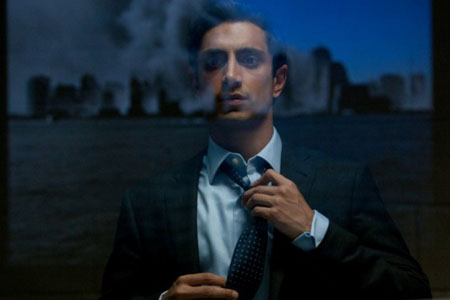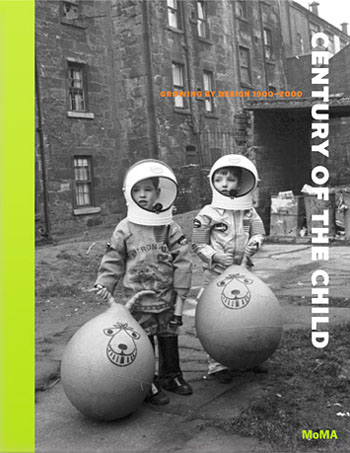The Venice Film Festival has announced that Mira Nair’s The Reluctant Fundamentalist will open its 69th edition on August 29: “Based on the best-selling novel of the same title, translated into 25 languages, The Reluctant Fundamentalist is a riveting international political thriller that follows the story of a young Pakistani man, chasing corporate success on Wall Street, who ultimately finds himself embroiled in a conflict between his American Dream, a hostage crisis, and the enduring call of his family’s homeland.” Nair’s film stars Riz Ahmed, Kate Hudson, Kiefer Sutherland, Liev Schreiber, Martin Donovan, Om Puri, and Shabana Azmi.
In other news. Laurence Kardish, Senior Curator in the Department of Film at MoMA, will retire on October 15, after44 years with the Museum. Dan Duray reports at GalleristNY.
Reading. Editors Adrian Martin and Girish Shambu have completed their rollout of the second issue of LOLA. The latest pieces to be posted: “When does a movement become an institution?” asks Meaghan Morris in a talk delivered at the 10th International Women’s Film Festival in Seoul in 2008; Justine Grace on the 54th Venice Biennale; “Cine-Letters, Rotterdam 2012,” an exchange between Cristina Álvarez López and Adrian Martin; and Edward Colless on theory: “Alas the word has nowadays been pacified, if not disowned. It’s time to reinvigorate its dark menace.”
Adrian Martin has also translated an essay by Nicole Brenez on Jean Renoir’s Partie de campagne (Day in the Country, 1936) and Philippe Grandrieux’s Sombre (1998) for Transit.
“From 1916, films from the US and nearly all of Europe were banned from Germany, and this ban held good until 31 December 1920.” David Bordwell puts a few of Kristin Thompson’s ideas about early cinematic style in Germany to the test and, in the process, stumbles “across some gratifyingly strange movies.”
Nisimazine has released a special issue on this year’s Karlovy Vary International Film Festival.
Now that its list of “25 New Faces of Independent Film” is out, Filmmaker has followed up by posting a selection of other features from its Summer 2012 issue. David France and Ira Sachs discuss their new features, How to Survive a Plague and Keep the Lights On; James Ponsoldt talks with Rian Johnson about his forthcoming Looper, a sci-fi thriller featuring Joseph Gordon-Levitt, Bruce Willis, Emily Blunt, and Jeff Daniels; Randy Astle on alternative means of distribution; Mary Anderson Casavant chats with Karol Martesko-Fenster about CINELAN, a company that aims to “to monetize short films on the Internet”; Heather Chaplin talks with Tom Bissell about writing for videogames; and Lance Weiler considers “Scarcity and Abundance in the Digital World.”
With just four days to go before Danny Boyle opens London 2012, Ronald Bergan revisits Leni Riefenstahl’s Olympia (1938) at the Arts Desk. Related: “Six Minutes in Berlin,” a piece by Michael J. Socolow for Slate on “the greatest Olympic race you’ve never heard of.”
The Guardian‘s Peter Bradshaw on his favorite Hitchcock: “Psycho is the sort of brilliant, nimble, cheap movie you’d expect from a young hotshot at the beginning of his career. But Hitchcock was 61…”
And the Guardian‘s running an excerpt from Lois Banner‘s book, Marilyn: The Passion and the Paradox. Related: “Poland plans to auction off part of a photographic collection that includes hundreds of photographs of Marilyn Monroe,” reports the AP. “The collection includes close to 4,000 photographs taken by the late celebrity photographer Milton H. Greene. Some are well-known images, but Polish officials say they believe the collection might contain some previously unpublished works.”
Robert Weide interviews Mel Brooks for the cover of the latest DGA Quarterly.
DVD/Blu-ray. Writing at Cinespect, Will Dodson recommends Criterion’s newish release of Hiroshi Inagaki’s Samurai Trilogy.
New York. “Probing the elusive terrain where technology, disruptive phenomena, and the contradictory human impulses for order and chaos meet (and often collide), the films of audiovisual poet/essayist Deborah Stratman set off alarms both literal and figurative,” writes Mark Holcomb. “Curated into three thematically distinct programs, Forces and Gazes highlights the artist’s signature juxtapositions of everyday banality with haunting, evocative images and sounds.” Today at Anthology Film Archives.
Also in the Voice, Nick Pinkerton previews Unaccompanied Minors: Views of Youth in Films From the Collection, running at MoMA through August 14 in conjunction with the exhibition Century of the Child: Growing by Design, 1900-2000.
The Silent Clowns Film Series, running at the New York Public Library for the Performing Arts this summer, is devoting its current season to Raymond Griffith. Imogen Smith in the Chiseler: “For the elegant, amoral Griffith, trouble is paradise.”
New York film critic David Edelstein and art critic Jerry Saltz agree to disagree as far as Christian Marclay’s The Clock is concerned.
In the works. “It appears that [Hayao] Miyazaki’s new film will be based on the life of Jiro Horikoshi, the man who designed the Zero fighter plane used in the attack on Pearl Harbor during World War II,” reports Hugo Ozman at Twitch.
Wong Kar-Wai is still shooting The Grandmaster, notes the Playlist‘s Kevin Jagernauth, who also has a few details on Racing Dreams, the directorial debut of cinematographer Lance Acord, who’s worked with Sofia Coppola, Spike Jonze, and Charlie Kaufman.
Ken Burns’s next epic documentary will be The Roosevelts: An Intimate History. Seven parts in 14 hours, reports Vulture‘s Margaret Lyons: “As if that weren’t nutritious enough, Paul Giamatti, Edward Herrmann, and Meryl Streep will provide their voices.”
Obit. “With her remarkable portrayal of the cantankerous, mean-spirited and selfish widow in Tatie Danielle (1990), Tsilla Chelton joined the ranks of those elderly female performers who, after a long career in show business, suddenly find themselves as film stars,” writes Ronald Bergan in the Guardian. “Like Katie Johnson in The Ladykillers (1955) and Ruth Gordon in Harold and Maude (1972), Chelton, who has died aged 93, finally moved into the limelight in her 70s.”
Further mid-summer browsing. The cinetrix and, for Criticwire, Steve Greene.
For news and tips throughout the day every day, follow @KeyframeDaily on Twitter and/or the RSS feed. Get Keyframe Daily in your inbox by signing in at fandor.com/daily.






